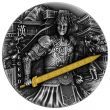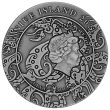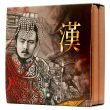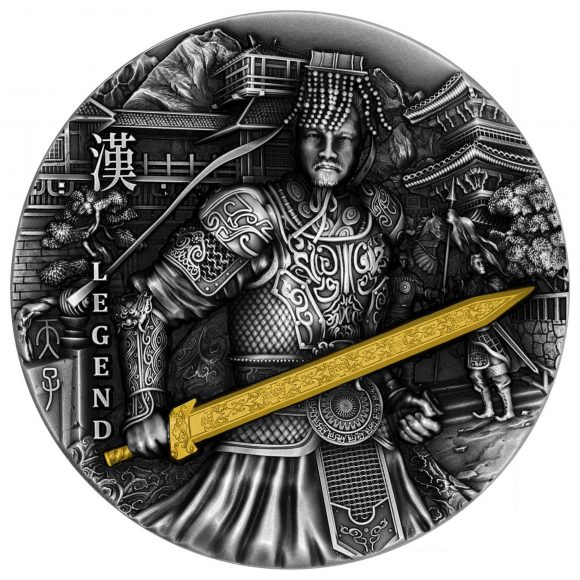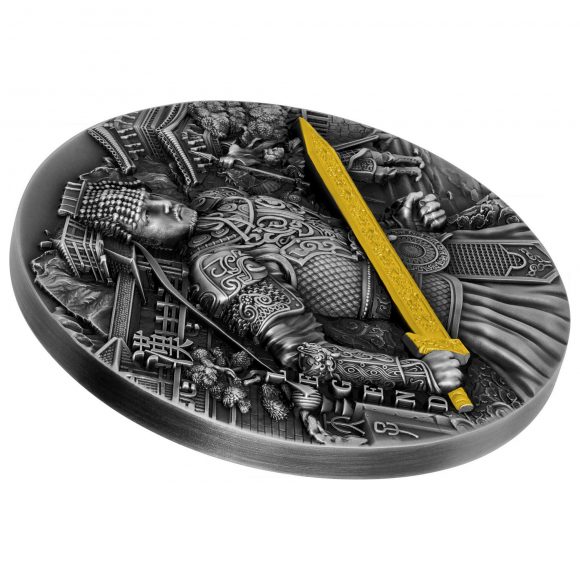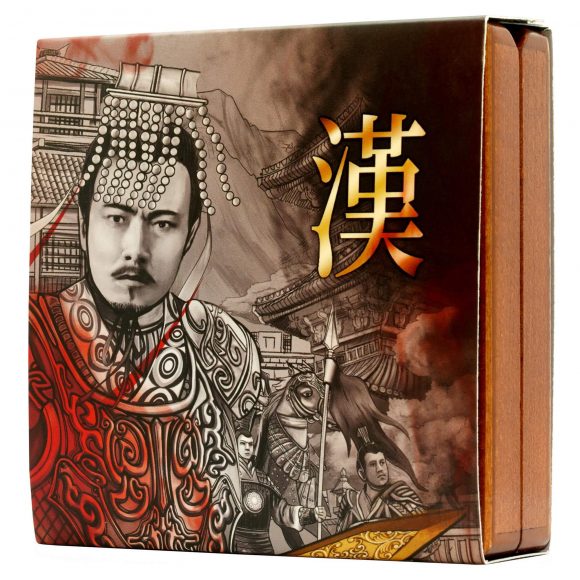Wu of Han (Liu Che; 156-87 BC) , was a Chinese emperor of the Han dynasty, under whose reign (140-87 BC) the dynasty reached its peak. Wu of Han is the second issue in the Legends of the Great Chinese Emperors series.
Wu of Han
| Legends of the Great Chinese Emperors | |
| Year of issue: | 2021 |
| Issuer country: | Niue |
| Face Value: | 5 Dollars |
| Metal: | Silver |
| Purity: | .999 |
| Weight: | 2 oz |
| Dimensions: | 45 mm |
| Relief: | High relief |
| Finish: | Antiqued |
| Additional: | Gold plated |
| Mintage: | 500 pieces |
Description
Wu of Han, also Han Wudi, born Liu Che, was the sixth emperor of the Han dynasty in China. He ruled from 141-87 BC. He is remembered mainly for the great territorial expansion that took place under his reign, as well as for the powerful and centralised Confucian state he organised. He is cited in Chinese history as one of the greatest emperors along with Emperor Taizong of the Tang Dynasty and Emperor Kangxi of the Qing Dynasty.
His foreign policy allowed for a significant expansion of imperial territories, hence the nickname by which he is known, Wudi, Wu Di or Wu-ti, meaning “Warrior Emperor”.
In 133 BC, Wudi began the campaign against the Xiongnu nomads, whose raids were a permanent threat to Han power, and defeated them in 119 BC, thus gaining dominance of the so-called Silk Road. Territorial expansion under his reign led to the conquest of Korea (128-108 BC), the regions of Annam (part of present-day Vietnam), Xinjiang and Fergana (in present-day Uzbekistan) and the city of Canton (111 BC), thus forming a vast Chinese Empire whose conquest left the state coffers exhausted.
In domestic politics, Wudi made Confucian philosophy almost a state religion as part of a reform of the imperial administration that included the decisive participation of Confucian legists. In 91 BC, his heir was falsely accused of treason and committed suicide. Wudi himself died four years later.






Other products of Legends of the Great Chinese Emperors



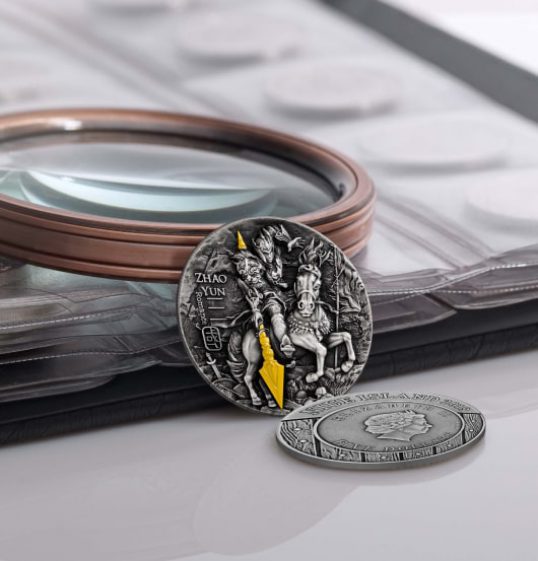

Check your email for the confirmation message.
